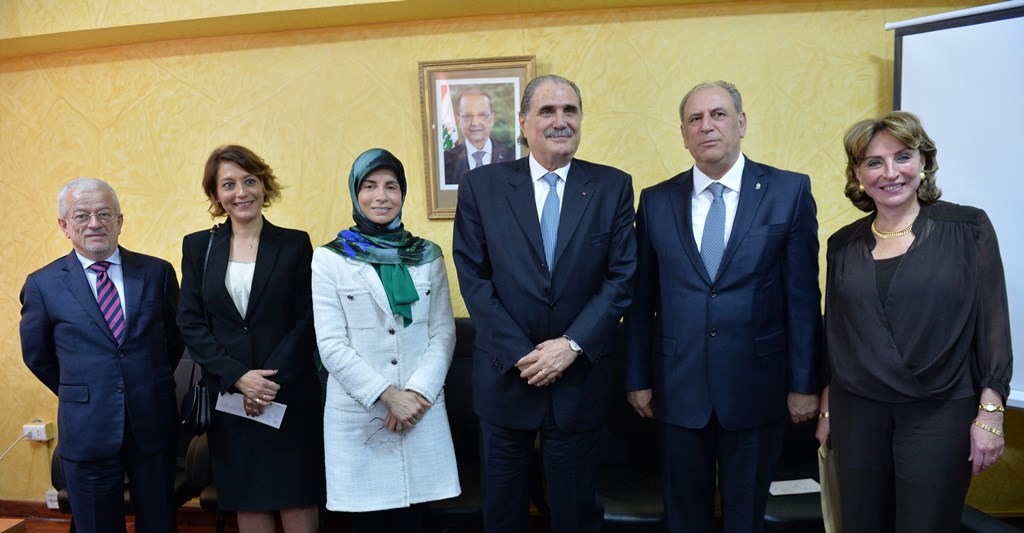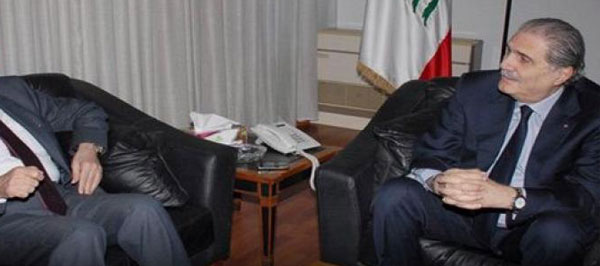COURTS > Supreme Judicial Council Back
Formation
The Supreme Council of Justice is consisted of ten members as the following:
Members by Right
Elected Members
Two judges, among the Presidents of chambers at the Court of Cassation, are elected for three years by the First President of the Court of Cassation, the presidents of the chambers and all the consultants in the Court of Cassation.
(Two members)
The electing committee meets, upon the convocation of the First President of the Court of Cassation, and under its control, during the month that precedes the expiry of the council term of office. The vote is made by secret ballots. The candidates who get the highest number of votes will be the winners. In case of equality in the votes, the one of the highest degree will be the winner, and in case of equality in the degrees, the eldest will be the winner.
The First President of the Court of Cassation organizes the minutes of the result, and notifies the Minister of Justice of it.
Appointed Members:
All these members are appointed by virtue of a decree upon the suggestion of the Ministry of Justice for three non-renewable years.
If a vacancy occurs in the post of any of the designated or elected members, the substitute member will be chosen in the same way for the remaining duration of the term of office. This term is renewable if it does not exceed one year and a half.
The office term of the appointed or elected member judges is for three years, non-renewable but after the expiry of a full term.
Taking the Oath
The members of the Supreme Council of Justice take, before the President of the Republic, and in the presence of the Minister of Justice, the following oath: “I swear in the Name of God that I will fulfill my duties in the Supreme Council of Justice with loyalty and faithfulness and that I will maintain the confidentiality of the deliberation and that I will seek in all my works the good progress of the judiciary, its dignity and independence.”
Formation of the Current Supreme Council of Justice
The Supreme Council of Justice is constituted of the following named judges:
Members by Right
Elected members:
Appointed members:
Duties
Meetings
The Deliberation’s confidentiality
The members of the council are bound to maintain the confidentiality, and any breach of the deliberation’s secrecy of the council is considered as a breach of the deliberation’s secrecy of the courts.
The Supreme Council of Justice is consisted of ten members as the following:
Members by Right
- The First President of the Court of Cassation as President
- The Public Prosecutor in the Court of Cassation as Vice-President
- The President of the Judicial Inspection Committee as a member
Elected Members
Two judges, among the Presidents of chambers at the Court of Cassation, are elected for three years by the First President of the Court of Cassation, the presidents of the chambers and all the consultants in the Court of Cassation.
(Two members)
The electing committee meets, upon the convocation of the First President of the Court of Cassation, and under its control, during the month that precedes the expiry of the council term of office. The vote is made by secret ballots. The candidates who get the highest number of votes will be the winners. In case of equality in the votes, the one of the highest degree will be the winner, and in case of equality in the degrees, the eldest will be the winner.
The First President of the Court of Cassation organizes the minutes of the result, and notifies the Minister of Justice of it.
Appointed Members:
- A judge among the presidents of the chambers at the Court of Cassation.
- Two judges among the presidents of the chambers at the Courts of Appeals.
- A judge among the presidents of the chambers at the Courts of First Instance.
- A judicial judge among the presidents of the courts or the presidents of the units in the Ministry of Justice. (Five members)
All these members are appointed by virtue of a decree upon the suggestion of the Ministry of Justice for three non-renewable years.
If a vacancy occurs in the post of any of the designated or elected members, the substitute member will be chosen in the same way for the remaining duration of the term of office. This term is renewable if it does not exceed one year and a half.
The office term of the appointed or elected member judges is for three years, non-renewable but after the expiry of a full term.
Taking the Oath
The members of the Supreme Council of Justice take, before the President of the Republic, and in the presence of the Minister of Justice, the following oath: “I swear in the Name of God that I will fulfill my duties in the Supreme Council of Justice with loyalty and faithfulness and that I will maintain the confidentiality of the deliberation and that I will seek in all my works the good progress of the judiciary, its dignity and independence.”
Formation of the Current Supreme Council of Justice
The Supreme Council of Justice is constituted of the following named judges:
Members by Right
- The First President of the Court of Cassation, Judge Antoine Kheir, as President
- The Public Prosecutor in the Court of Cassation, judge Said Mirza, as vice- president
- The President of the Judicial Inspection Committee, judge Mohamad Oweida, as member
Elected members:
- Judge Ralph Riachy
- Judge Souheil Abdel Samad (retired)
Appointed members:
- Judge Abdel Latif Husseiny
- Judge Saad Jabbour
- Judge Nehme Lahoud
- Judge Choukri Sader
- Judge Ferial Dalloul
Duties
- The Supreme Council of Justice watches over the good functioning of the Judiciary, its dignity and independence, as well as the good performance of the works in courts and takes the necessary decisions in this concern.
- It makes projects for the judicial transfers, appointments and delegations, being individual or collective, and submits them to the Ministry of Justice to obtain his approval. The appointments do not enter in effect but after the approval of the Minister of Justice.
- If any difference in opinions occurs between the Minister of Justice and the Supreme Council of Justice, a common meeting will be held between them to examine the contested issues. And in case such difference persists, the Supreme Council of Justice will reconsider the matter to resolve it; its decision is adopted by the majority of seven members, and it is final and binding.
- The judicial appointments are issued by virtue of a decree taken upon the suggestion of the Minister of Justice.
- The formation of the Disciplinary Council for Judges.
- It studies the file of any judge, and requests the Judicial Inspection Committee to undertake the necessary investigation and to take the proper measures and decisions.
- It examines the demands of special amnesties, presented by the criminals sentenced to death or referred to it by the competent authorities.
- It assigns a committee, consisted of three of its members, to consider the other demands for amnesty.
- It gives its opinion concerning the drafts of laws and regulations related to the Judicial Judiciary, and it proposes projects and texts that it deems adequate in this concern to the Minister of Justice.
Meetings
- The Supreme Council of Justice meets upon the convocation of the president, and in his absence, upon the convocation of the vice-president. It meets as well upon the request of four among its members. The Ministry of Justice is entitled to convoke the Council to a meeting.
In the absence of the president or his vice president, the judge of highest degree chairs the meeting, and in case of equality in degrees, the senior in the judiciary chairs. And in case of equality in seniority, the eldest member will chair.
The convocation includes the date of the meeting and its agenda provided that a preliminary agenda will be put under the disposal of the members before the secretariat of the council at least 24 hours before the date of the meeting. - The meeting is not legal unless attended by at least six members of the council.
- With the exception of the cases for which a special majority is provided, the decisions of the council are taken by the majority of votes, and in case of equality in votes, the president will have the casting vote.
- Once passed, the decisions of the council are immediately referred to the Minister of Justice.
- Serial minutes of the council meetings and its decisions are scheduled by dates order and are kept before the President of the Supreme Council of Justice after having been signed by the president and the members.
The Deliberation’s confidentiality
The members of the council are bound to maintain the confidentiality, and any breach of the deliberation’s secrecy of the council is considered as a breach of the deliberation’s secrecy of the courts.





